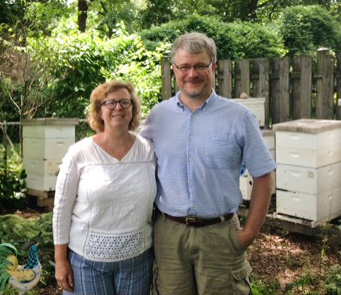On July 12, Eleanor Roosevelt High School hosted one of a series of public outreach meetings regarding the Prince George’s County zoning re-write initiative. The town hall was hosted by the county’s Planning Department and the Maryland-National Capital Park and Planning Commission (MNCPPC). In his welcoming remarks, Council Chair Derrick Davis of District 6 stated, “Updating the county’s zoning policies is among the most important undertakings of the council…and it will enhance the ability of this important economic development tool to stimulate growth in our county.”
The Zoning Ordinance and Subdivision Regulations Rewrite, which launched in 2014, is designed to streamline the county’s zoning ordinance. The current zoning ordinance is almost 1,000 pages and confusing, he said. The initiative hopes to consolidate the county’s 74 different zoning categories to approximately 40, and utilize the revamped zoning ordinance as a tool to steer growth and development to targeted areas, particularly around Metro stations. Despite the fact that Prince George’s County has a significantly higher median household income than most counties in the country, it lacks a strong commercial tax base. This leaves residents paying the bulk of taxes and feeling the brunt of the increased costs of running the county.
As the county seeks to attract bigger businesses, many town hall participants urged the council not to constrain small business. For example, Jeff Forbes, chair of the Bowie/Upper Marlboro Beekeepers Association (BUMBA) Rezoning Committee and owner of Honey Glow, spoke against the restrictions on beekeeping in the proposed rewrite. The revised ordinance would consider beekeeping agricultural production and limit the practice to properties that are greater than 20,000 square feet (a little less than a half-acre).
Several attendees stated that limiting beekeeping could have an adverse impact on the county. There are a number of bee-based businesses, like Honey Glow, around the county that provide residents with widely sought after all-natural honey-based products and fresh local honey. Many residents have taken up beekeeping as a hobby to do their part to address the decline in the bee and pollinator population. Bees support local gardeners by helping pollinate flower and vegetable gardens. Montgomery County and the District of Columbia have substantially relaxed regulations regarding beekeeping to support these efforts. The state of Maryland recently enacted one of the most aggressive laws to protect pollinators in the country. The county’s attempts to “modernize” the zoning ordinance may in fact set the county back amongst its peers when it comes to beekeeping.
Planning Department and MNCPPC representatives did not respond to the beekeepers’ concerns.
The Planning Department has held numerous outreach events since the re-write initiative began and will continue to take feedback from residents.

